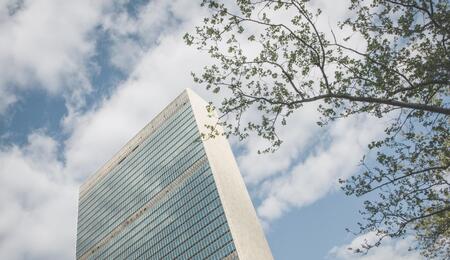The United Nations Removes Cannabis from List of Dangerous Drugs

A United Nations commission voted on Wednesday (2 December) to remove cannabis from a list that categorized it as a dangerous substance. The move has been interpreted to highlight the medicinal values of the cannabis plant and has been hailed as a "historic victory" by advocates of cannabis.
The former classification has effectively placed cannabis alongside dangerous substances such as heroin and opioids. The UN Commission on Narcotic Drugs, which has 53 member states and is based in Vienna, now stripped cannabis and cannabis resin from its 1961 Single Convention on Narcotic Drugs where the substance was listed as Schedule IV classification. Schedule IV substances are a subset of Schedule I drugs, meaning they have been labeled as "highly addictive," "highly liable for abuse," "harmful," and "of extremely limited medical or therapeutic value."
A group of renowned drug policy organizations has welcomed the move, although it has also raised concerns that the reform fails to decategorize cannabis internationally where it remains in the company of substances such as heroin and cocaine. "This is a huge, historic victory for us, we couldn't hope for more," said Kenzi Riboulet-Zemouli, an independent researcher for drug policy who has closely monitored the vote and the position of member states, The New York Times reported.
Riboulet-Zemouli said that cannabis had been used throughout history for medicinal purposes, and the Wednesday decision has reinstated such a status. “We welcome the long overdue recognition that cannabis is a medicine. However, this reform alone is far from adequate given that cannabis remains incorrectly scheduled at the international level," said Ann Fordham, Executive Director of the International Drug Policy Consortium, in a statement.
"The original decision to prohibit cannabis lacked scientific basis and was rooted in colonial prejudice and racism. It disregarded the rights and traditions of communities that have been growing and using cannabis for medicinal, therapeutic, religious, and cultural purposes for centuries and has led to millions being criminalized and incarcerated across the globe," Fordham said.
"The review process has been a missed opportunity to correct the historical error," she said. The vote will have no immediate effect to ease off international controls as governments will still have a final say over how to classify cannabis, according to experts. Nevertheless, many countries look to global conventions for guidance, and United Nations recognition is a symbolic win for advocates of drug policy change who say that international law is out of date.
The move comes as the United States is pending motion on the MORE Act, which should effectively remove marijuana from the federal Controlled Substances Act. The U.S. House of Representatives was initially set to vote on the Act in September, but the much-anticipated moment was postponed until after the November elections.



